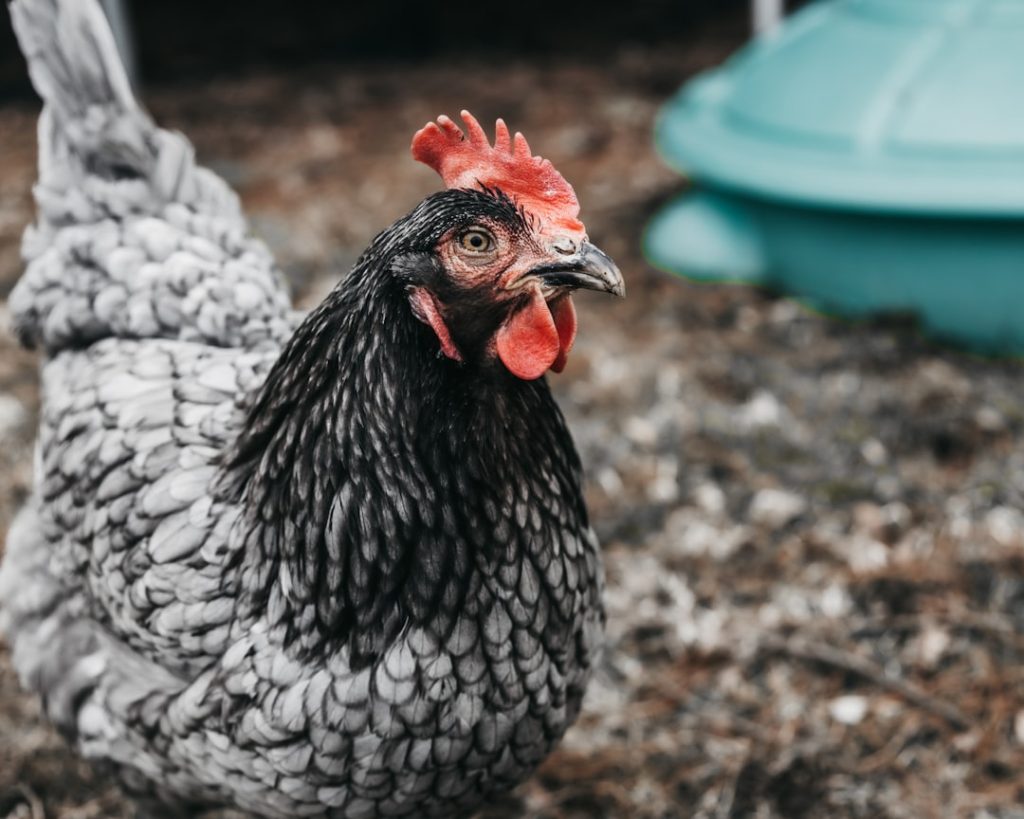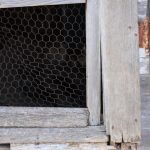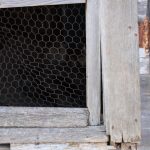Weasels are small carnivorous mammals known for their predatory behavior towards chickens. These agile animals can easily infiltrate poorly secured chicken coops through small openings, making them a significant threat to poultry. Weasels are primarily nocturnal, which complicates efforts to protect chickens from their attacks.
These predators are attracted to chickens as an accessible food source. Weasels possess excellent hunting skills and can kill multiple chickens in a single attack, often more than they can consume. This behavior can result in substantial losses for chicken owners.
Weasels are opportunistic hunters, drawn to the scent of chickens and inadequately protected coops. Their ability to squeeze through tiny spaces necessitates thorough fortification of chicken enclosures. Understanding the nature of the weasel threat is crucial for chicken owners to implement effective protective measures and safeguard their flocks.
To minimize the risk of weasel attacks, chicken owners must take proactive steps to secure their coops, eliminating potential entry points and implementing additional safety measures. This approach is essential for maintaining the well-being and safety of domestic chicken populations.
Table of Contents
- 1 Securing the coop: Tips for fortifying your chicken enclosure
- 2 Deterrents and repellents: Natural ways to keep weasels at bay
- 3 Predator-proofing your property: Creating a safe environment for your chickens
- 4 Observing behavior: Recognizing signs of weasel activity
- 5 Seeking professional help: When to call in a wildlife expert
- 6 Living harmoniously: Coexisting with wildlife while protecting your chickens
- 7 FAQs
- 7.1 What are weasels and why do they kill chickens?
- 7.2 How can I tell if weasels are killing my chickens?
- 7.3 What are some ways to keep weasels from killing my chickens?
- 7.4 Are there any natural predators of weasels that can help control their population?
- 7.5 What should I do if I suspect weasels are killing my chickens?
Key Takeaways
- Weasels target chickens because they are easy prey and provide a good source of food.
- Fortify your chicken enclosure by using sturdy materials, burying wire mesh, and securing all entry points.
- Natural deterrents for weasels include predator urine, strong-smelling plants, and motion-activated lights or sound devices.
- Create a safe environment for your chickens by removing hiding spots, keeping the area clean, and using guard animals.
- Signs of weasel activity include missing eggs, small animal carcasses, and tracks near the coop.
- Call a wildlife expert if you have a persistent weasel problem or if you are unsure how to handle the situation.
- Coexist with wildlife by understanding their behavior, providing alternative food sources, and using non-lethal methods to protect your chickens.
Securing the coop: Tips for fortifying your chicken enclosure
Sealing All Openings
One of the most important steps in fortifying your chicken enclosure is to ensure that there are no gaps or openings that weasels can use to access the coop. This includes checking for any holes in the walls or floor of the coop, as well as ensuring that all doors and windows are securely closed and latched.
Using Hardware Cloth and Wire Mesh
It is also important to use hardware cloth with small mesh size to cover any openings, as weasels can easily squeeze through larger gaps. Another important aspect of securing the coop is to bury wire mesh around the perimeter of the coop to prevent weasels from digging underneath and gaining access from below. This will help to create a barrier that weasels cannot penetrate, effectively keeping them out of the coop.
Maintenance and Perimeter Security
Additionally, it is important to regularly inspect the coop for any signs of wear and tear, and make any necessary repairs to ensure that it remains secure and impenetrable to weasels. In addition to fortifying the coop itself, it is also important to secure the surrounding area to prevent weasels from gaining access to the coop from outside. This can be done by installing fencing around the perimeter of the coop and using predator-proof locks on all doors and windows.
By taking these steps to secure the coop, chicken owners can effectively protect their flock from weasel attacks and ensure their safety.
Deterrents and repellents: Natural ways to keep weasels at bay
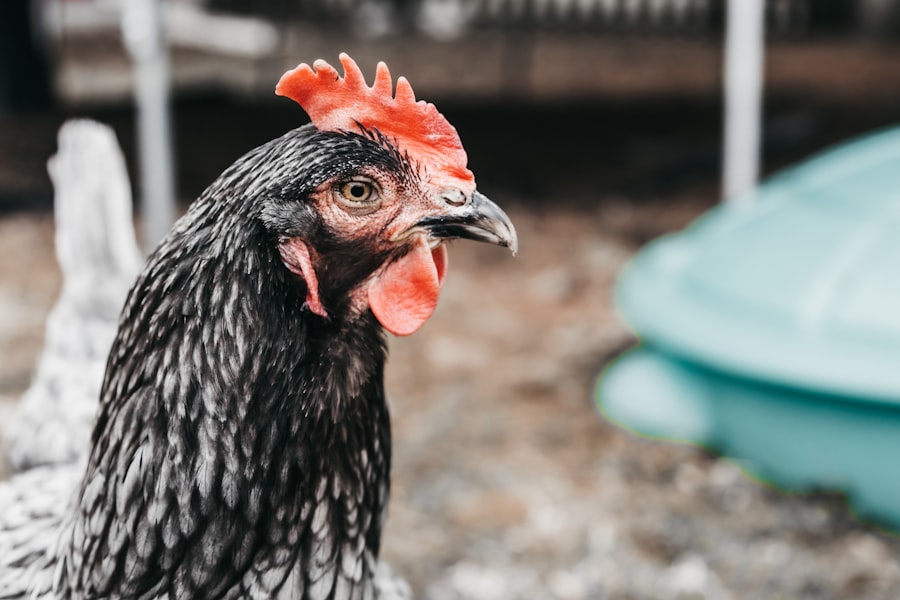
In addition to securing the coop, there are natural deterrents and repellents that can be used to keep weasels at bay. One effective method is to use strong-smelling substances, such as predator urine or ammonia, around the perimeter of the coop to deter weasels from approaching. These scents are known to be unpleasant to weasels and can help to keep them away from the coop.
Another natural deterrent is to plant strong-smelling herbs and flowers around the coop, such as lavender, mint, or marigolds. These plants can help to mask the scent of the chickens and make it more difficult for weasels to locate them. Additionally, some plants have natural repellent properties that can deter weasels from approaching the coop.
Another natural way to keep weasels at bay is to encourage natural predators, such as owls or hawks, to frequent the area around the coop. These predators are known to prey on weasels and can help to keep their population in check. By creating a habitat that is attractive to these natural predators, chicken owners can help to reduce the risk of weasel attacks on their flock.
Predator-proofing your property: Creating a safe environment for your chickens
In addition to securing the coop and using natural deterrents, it is important to predator-proof your entire property to create a safe environment for your chickens. This includes removing any potential hiding spots for weasels, such as brush piles or tall grass, which can provide cover for these predators as they approach the coop. It is also important to keep the area around the coop well-lit at night, as weasels are more likely to attack under the cover of darkness.
Another important aspect of predator-proofing your property is to remove any potential food sources for weasels, such as spilled grain or garbage, which can attract these predators to your property. By eliminating these food sources, you can help to reduce the likelihood of weasel attacks on your flock. Additionally, it is important to keep the area around the coop clean and free of debris, as cluttered areas can provide hiding spots for weasels.
It is also important to regularly inspect your property for any signs of weasel activity, such as tracks or droppings, and take proactive measures to address any potential threats. By predator-proofing your property and creating a safe environment for your chickens, you can help to minimize the risk of weasel attacks and ensure the safety of your flock.
Observing behavior: Recognizing signs of weasel activity
Observing behavior is an important aspect of protecting your chickens from weasel attacks. By recognizing signs of weasel activity, you can take proactive measures to address any potential threats and protect your flock. One common sign of weasel activity is the presence of tracks or droppings around the coop, which can indicate that weasels are frequenting the area and may pose a threat to your chickens.
Another sign of weasel activity is missing or injured chickens, which can indicate that weasels have gained access to the coop and preyed on your flock. It is important to regularly inspect your chickens for any signs of injury or distress, as well as count them regularly to ensure that none have gone missing. By observing behavior and recognizing signs of weasel activity, you can take proactive measures to protect your flock and minimize the risk of attacks.
It is also important to pay attention to any unusual behavior in your chickens, such as increased agitation or distress, which can indicate that they sense a potential threat from weasels. By observing behavior and recognizing signs of weasel activity, you can take proactive measures to protect your flock and ensure their safety.
Seeking professional help: When to call in a wildlife expert
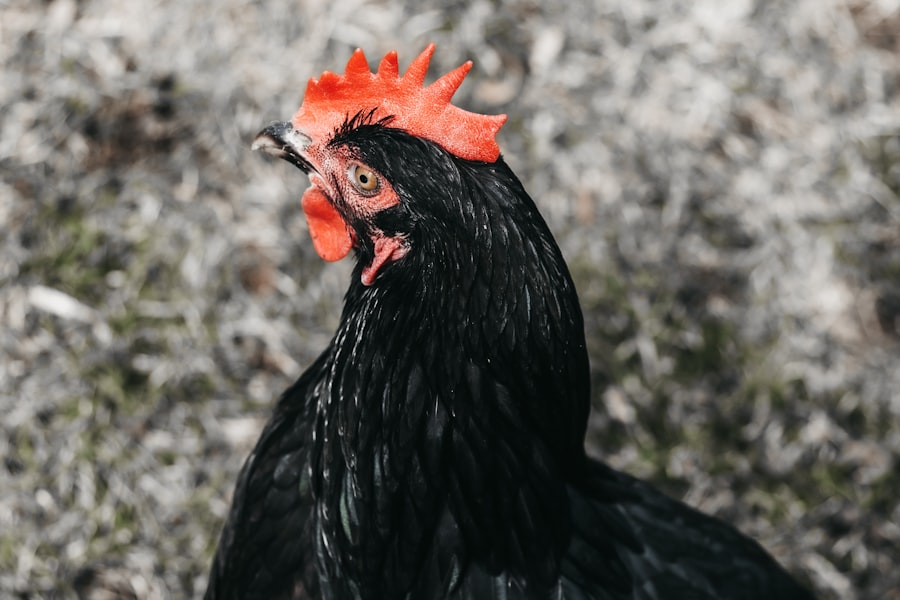
Assessing Your Property and Identifying Entry Points
A wildlife expert can assess your property to identify potential entry points for weasels and provide recommendations on how to effectively fortify your coop against these predators. They may also suggest additional deterrents or repellents specifically designed to keep weasels at bay.
Coexisting with Wildlife
A wildlife expert can offer guidance on how to coexist with wildlife while protecting your chickens. They may suggest creating a habitat that attracts natural predators of weasels, such as owls or hawks, which can help keep their population in check.
Gaining Valuable Insight and Expertise
By seeking professional help, you can gain valuable insight into how to protect your flock from weasel attacks while living harmoniously with wildlife. A wildlife expert can provide you with the knowledge and expertise needed to ensure the safety of your chickens and maintain a balanced ecosystem.
Living harmoniously: Coexisting with wildlife while protecting your chickens
Living harmoniously with wildlife while protecting your chickens is an important aspect of being a responsible chicken owner. It is possible to create a safe environment for your flock while also coexisting with wildlife in a way that is respectful and sustainable. One way to achieve this balance is by creating a habitat that is attractive to natural predators of weasels, such as owls or hawks, which can help to keep their population in check.
Another way to live harmoniously with wildlife while protecting your chickens is by using natural deterrents and repellents that do not harm other animals or disrupt the ecosystem. By using strong-smelling substances or planting natural repellent plants around the coop, you can keep weasels at bay without causing harm to other wildlife in the area. It is important to consider the impact of any deterrents or repellents on other animals and use methods that are targeted specifically at keeping weasels away from your flock.
Additionally, it is important to be mindful of how you interact with wildlife on your property and take steps to minimize any potential conflicts with predators such as weasels. This may include securing food sources and removing potential hiding spots for weasels in order to reduce their presence on your property. By living harmoniously with wildlife while protecting your chickens, you can create a safe and sustainable environment for your flock while respecting the natural ecosystem around you.
In conclusion, protecting your chickens from weasel attacks requires a multi-faceted approach that includes securing the coop, using natural deterrents and repellents, predator-proofing your property, observing behavior, seeking professional help when necessary, and living harmoniously with wildlife. By understanding the threat that weasels pose to chickens and taking proactive measures to protect your flock, you can ensure their safety while coexisting with wildlife in a way that is respectful and sustainable.
If you’re looking for ways to keep weasels from killing your chickens, you may want to consider investing in a secure chicken coop like the Snaplock Chicken Coop mentioned in this article. A sturdy coop with proper locks and barriers can help protect your chickens from predators like weasels.
FAQs
What are weasels and why do they kill chickens?
Weasels are small, carnivorous mammals that are known for their ability to hunt and kill small animals, including chickens. They are attracted to chicken coops because of the easy access to prey and the potential for a steady food source.
How can I tell if weasels are killing my chickens?
Signs of weasel predation on chickens include missing birds, bite marks on the neck or head, and the presence of small, narrow tracks around the coop. Weasels are known for their ability to kill multiple birds in a single attack, often leaving behind a trail of destruction.
What are some ways to keep weasels from killing my chickens?
Some effective methods for keeping weasels away from chicken coops include securing the coop with sturdy wire mesh, burying the mesh to prevent digging, and using motion-activated lights or sound devices to deter predators. Additionally, keeping the area around the coop free of debris and overgrown vegetation can help reduce the likelihood of weasel attacks.
Are there any natural predators of weasels that can help control their population?
Some natural predators of weasels include larger carnivores such as foxes, coyotes, and birds of prey. Encouraging the presence of these predators in the area surrounding the chicken coop can help to keep weasel populations in check.
What should I do if I suspect weasels are killing my chickens?
If you suspect that weasels are preying on your chickens, it is important to take immediate action to protect your flock. This may include reinforcing the coop with predator-proof materials, setting traps for the weasels, or contacting a professional wildlife control service for assistance.
Meet Walter, the feathered-friend fanatic of Florida! Nestled in the sunshine state, Walter struts through life with his feathered companions, clucking his way to happiness. With a coop that’s fancier than a five-star hotel, he’s the Don Juan of the chicken world. When he’s not teaching his hens to do the cha-cha, you’ll find him in a heated debate with his prized rooster, Sir Clucks-a-Lot. Walter’s poultry passion is no yolk; he’s the sunny-side-up guy you never knew you needed in your flock of friends!

